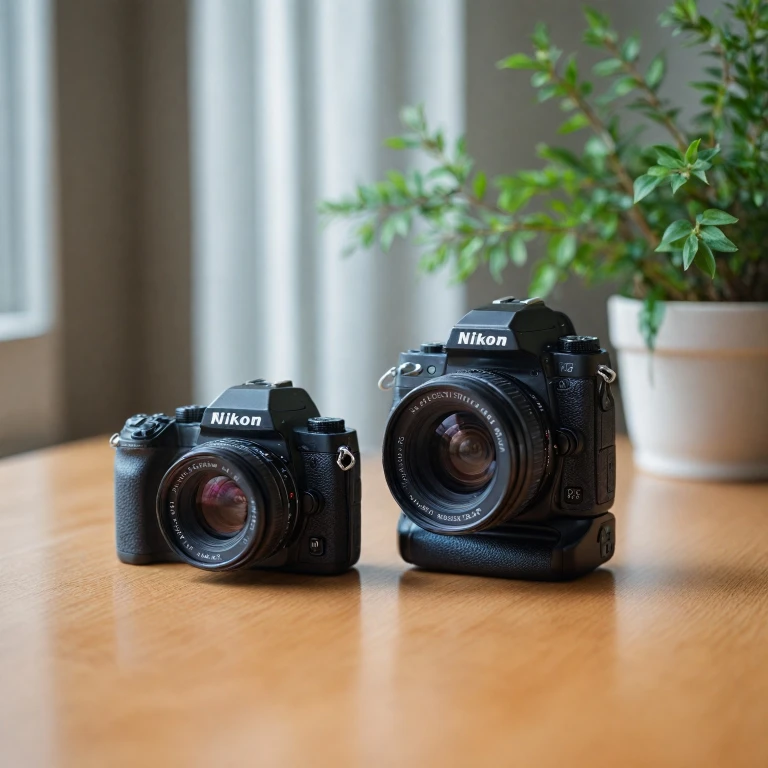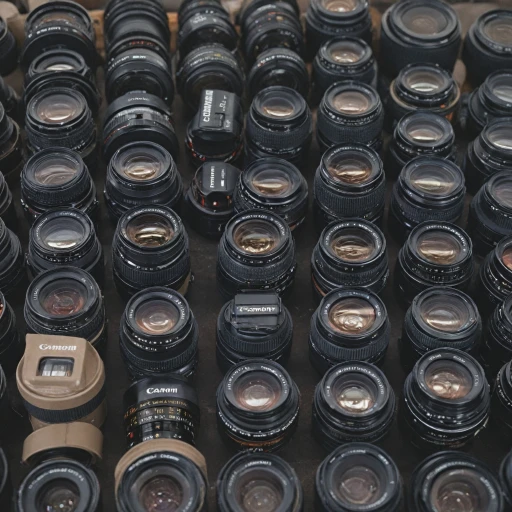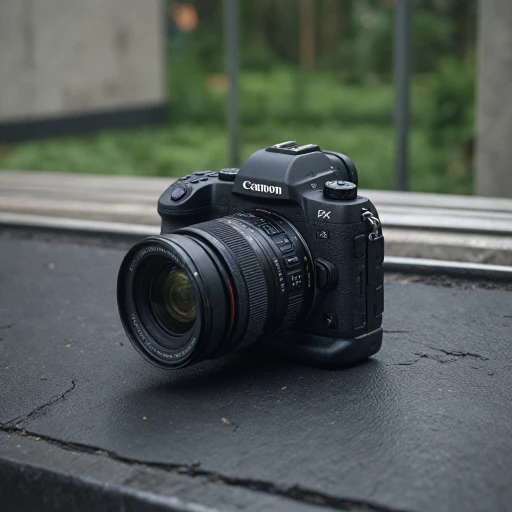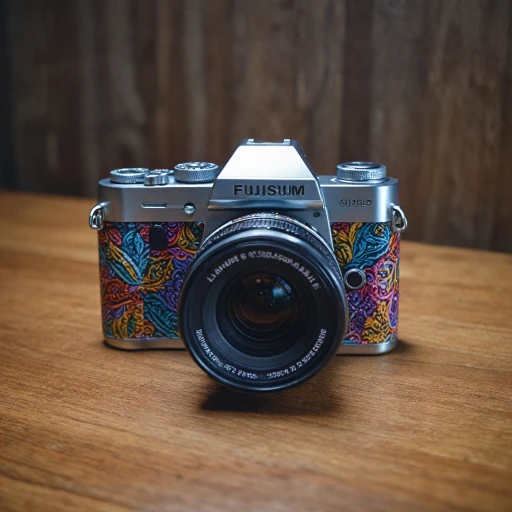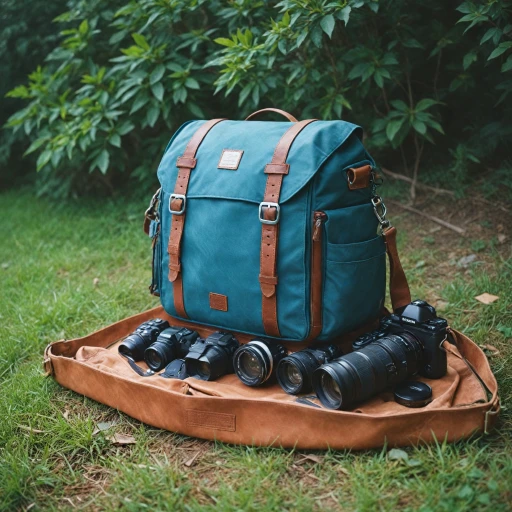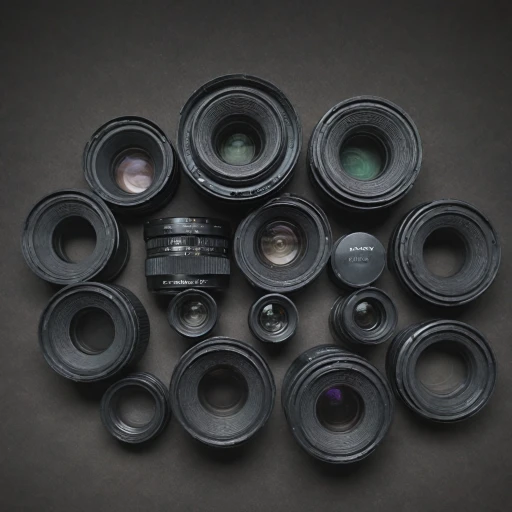Understanding Camera Adapters
Unlocking the Potential: Camera Adapter Basics
Navigating the world of photography can transform how you capture life's moments, particularly when you delve into the specialized realm of camera adapters. These critical accessories unlock a multitude of possibilities, enabling you to harness the full potential of various camera bodies, lenses, and mounts. Camera adapters serve as versatile connectors, allowing photographers to use lenses that might not naturally fit their camera bodies. Consider this essential component of your gear, especially if you yearn to experiment with different lens brands or camera setups. When transitioning between systems, such as connecting a Nikon lens to a Canon EOS mount, a quality adapter is indispensable. Modern adapters stand as testament to technological evolution, accommodating everything from vintage glass to cutting-edge mirrorless cameras. Some adapters, like those from Fotodiox and K&F Concept, offer robust solutions that bridge traditional lens mounts with contemporary camera innovations. The appetite for flexibility is further fed by diverse functionalities that adapters provide, such as infinity focus and aperture control. These features ensure you maintain control over essential photographic elements, fostering creativity in capturing stunning visuals. The market offers options designed for different performance expectations. Some prioritize automatic focus confirmation, essential for precise shooting, while others are perfect for professionals needing enhanced fusion between camera body and lens mount. Gradually, you'll explore how these adapters stand against each other in terms of cost, value, and user satisfaction. Understanding the features and specifications of products like the Nikon F to EF Pro Adapter will guide you in making informed choices tailored to your requirements.Nikon F to EF Pro Adapter Features
Distinct Features of the Nikon F to EF Pro Adapter
The Nikon F to EF Pro Adapter is a remarkable piece of gear that accommodates photographers who are avid users of Nikon lenses yet wish to explore the compatibility of the Canon EOS mount system. This adapter stands out for its versatility, allowing a seamless integration of Nikon F mount lenses onto Canon camera bodies. This adapter boasts robust construction, tailored to withstand rigorous use while ensuring reliable performance. The promise of infinity focus is a significant advantage, granting users the benefit of sharp focus across all distances, an essential feature for photographers keen on capturing everything from stunning landscapes to detailed portraits. Handle aperture control with ease utilizing this adapter, as it facilitates manual adjustments even when there is no built-in camera control available. This proves particularly beneficial in settings without electronic connectivity, allowing photographers ample flexibility with their Nikon lens settings on a Canon body. Fotodiox and K&F Concept, prominent manufacturers of such adapters, instill confidence through focus confirmation features that offer accuracy, boosting the effectiveness of the adapter within different shooting contexts. Such features not only enhance precision but also contribute to ease of use, especially when transitioning between various mounts and lenses. For those venturing into using their Nikon gear on a Canon EOS camera, the Nikon F to EF Pro Adapter rounds off a vital inclusion in your collection of accessories, akin to a star player in a champion team. As you consider your digital camera needs, understanding these key attributes ensures a knowledgeable decision in selecting the best fitting adapter for your setup.Standard Adapter Options
Exploring Adapter Types for Canon and Nikon
When delving into the world of camera adapters, especially for those who switch between Nikon and Canon setups, it's essential to grasp the variety of standard options available. Adapters play a crucial role in bridging the gap between different lens mounts, seamlessly merging systems like Nikon mounts with Canon EOS bodies.- Fotodiox Adapters: Known for their durability, Fotodiox offers a broad array of lens adapters, including their signature WonderPana series. These are particularly favored by photographers looking to use Nikon lenses on Canon cameras, ensuring reliable connections and maintaining vital functionalities such as aperture control.
- K&F Concept Adapters: Another prominent player, K&F Concept, provides a wide selection of budget-friendly yet effective adapters. Their offerings allow seamless integration between different lens and camera bodies, preserving essential features like infinity focus and stability.
- Basic Mount Adapters: While pro options might boast additional features, basic mount adapters effectively manage the core function of compatibility between different system mounts, whether you're switching from a Canon lens body to a Nikon camera gear or vice versa.
Performance Comparison: Pro vs Standard
Performance Showdown: Pro Adapter Versus Standard
In the world of digital cameras, choosing the right adapter can significantly impact your photography experience, especially when dealing with the Nikon F mount to Canon EF system. The performance of the Nikon F to EF Pro Adapter is often a focal point of discussion due to its promised capabilities, including maintaining infinity focus, precise aperture control, and reliable focus confirmation. However, how does it stack up against standard alternatives?
Firstly, the Pro adapters like Fotodiox Spin offer superior build quality and are designed to align perfectly with both Nikon lenses and Canon EOS body, ensuring that there is no wobble or misalignment. This is crucial for maintaining the integrity of your shots, particularly when using high-end lenses canon for professional results. Additionally, the pro options usually incorporate electronic contacts that help in maintaining communication between the lens and the camera body. This means features like aperture control and focus confirmation are more accurate and reliable.
On the flip side, standard adapters, which are generally less costly, focus primarily on manual control. They may not offer the sophisticated electronics found in pro models, and while they fit securely, they might not provide that seamless integration that pro adapters offer with lenses from Nikon to Canon EOS systems. These standard options are typically favored by hobbyists who prefer to manually set parameters such as focus and aperture.
Moreover, when it comes to mirrorless cameras, where precision and compactness are often prioritized, using a pro adapter can enhance the efficiency of your gear. Brands like K&F Concept often provide input in the form of innovative designs that accommodate the slimmer profiles of modern cameras, ensuring that even with lens adapters, the camera feels balanced and manageable.
Whether you're capturing expressive portraits or fast-moving subjects, the need for quick focus and seamless communication between lens body and camera body shouldn't be underestimated. Standard adapters, convenient as they may be, sometimes fall short in rapid or complex shooting scenarios due to their lack of advanced features found in pro models.
Ultimately, the decision between a Nikon F to EF Pro Adapter and a standard option boils down to your specific needs. If precision, durability, and advanced features are priorities in your photography toolkit, opting for a pro adapter makes a compelling case. However, if simplicity and budget are more aligned with your photography goals, a standard adapter might suffice.
